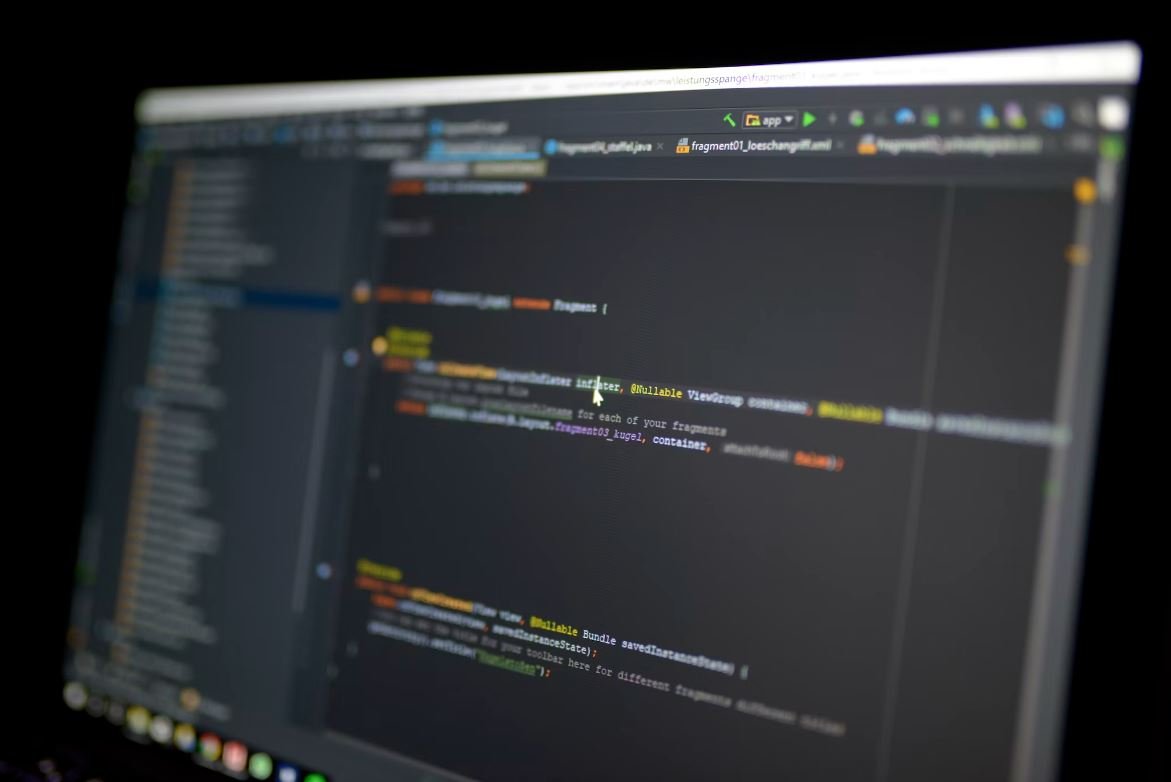AI in Video Creation
Artificial Intelligence (AI) has made significant advancements across various industries, and one area where it’s making a notable impact is in video creation. AI is revolutionizing the way videos are produced, from automating the editing process to generating realistic deepfake videos. This article explores the role of AI in video creation and its implications for the future.
Key Takeaways:
- AI is transforming video creation by automating editing processes and generating realistic deepfake videos.
- AI-powered video editing tools can save time and improve efficiency, allowing creators to focus on the creative aspects.
- Deepfake videos created using AI raise ethical concerns and highlight the need for responsible use of the technology.
- AI can analyze video content and metadata to enhance searchability and improve video recommendations.
- Video creation using AI is still in its early stages, but the technology holds immense potential for the future.
AI-powered video editing tools are transforming the way videos are produced. **Using algorithms**, these tools can automatically analyze video footage, identify key moments, and generate a sequence that aligns with the desired style or theme. *This automation not only saves time, but it also improves efficiency by reducing the manual effort required for editing.* Additionally, AI can help in color correction, noise reduction, and even adding visual effects.
One area where AI has caused both fascination and concern is in the creation of deepfake videos. Deepfakes use AI algorithms to superimpose one person’s face onto another person’s body, creating realistic but fabricated videos. *These videos can be both entertaining and deceptive, raising ethical concerns surrounding their misuse.* The development of AI algorithms that can detect deepfakes is an ongoing effort to mitigate potential harm.
Automatic Video Summarization
AI can also be used to automatically summarize long videos by identifying the most important moments and creating a concise summary. *This saves viewers’ time and enables better video browsing and search functionality.* By analyzing video content, audio, and metadata, AI algorithms can identify key objects, events, and keywords to generate accurate and descriptive summaries.
AI algorithms can extract metadata from videos, including facial recognition, object detection, and scene recognition, resulting in more precise video recommendations. For example, a video hosting platform can use AI to analyze the content of the videos users have watched and recommend similar videos based on their preferences. *This personalized recommendation system improves the user experience and increases engagement.*
Data Privacy and Ethical Concerns
As with any technology, the use of AI in video creation raises important ethical concerns. Deepfake videos, in particular, have the potential to be used for malicious purposes, such as spreading disinformation or manipulating public opinion. *Efforts are being made to develop AI algorithms that can detect deepfakes and prevent their harmful effects.* Responsible use of AI in video creation is crucial to ensure the technology is used for positive purposes.
Despite the ethical concerns, AI has the potential to revolutionize video creation. By automating editing processes, enhancing searchability and recommendations, and providing intelligent analysis of video content, AI opens up new possibilities for creators and viewers alike. With further advancements and responsible implementation, AI will continue to shape the future of video creation.
Table 1: Benefits of AI in Video Creation
| Benefit | Description |
|---|---|
| Automated Editing | AI algorithms can automate the video editing process, saving time and improving efficiency. |
| Improved Recommendations | AI can analyze video content and metadata to provide more accurate and personalized video recommendations. |
| Enhanced Searchability | By analyzing video content and metadata, AI algorithms can improve video search functionality. |
AI technology is rapidly advancing, and its applications in video creation are still being explored. The potential for AI to automate and improve various aspects of video production is immense, but it also poses challenges such as data privacy and ethical concerns. *As AI continues to evolve, the responsible and ethical use of this technology becomes paramount.* The future of video creation lies in a harmonious integration of human creativity and AI-powered automation, leading to more engaging and captivating video content.
Table 2: Ethical Challenges in AI Video Creation
| Challenge | Description |
|---|---|
| Deepfake Misuse | The creation and spread of deepfake videos raise concerns about deception and misuse of AI technology. |
| Privacy Concerns | AI algorithms collect and analyze user data, raising concerns about data privacy and security. |
| Reliance on Algorithms | The reliance on AI algorithms shifts decision-making power away from human creators, impacting artistic control. |
AI in video creation is still at its early stages, with many advancements yet to be made. However, the potential benefits and opportunities it offers are already evident. By leveraging AI-powered tools, video creators can streamline their workflow and bring their creative vision to life. While responsible implementation and addressing ethical concerns are necessary, embracing AI in video creation opens up exciting possibilities for the future.
Table 3: AI in Video Creation Statistics
| Statistic | Value |
|---|---|
| Global AI in the Media and Entertainment Market Size (2020) | $697.4 million |
| Expected CAGR of AI in the Media and Entertainment Market (2021-2028) | 25.0% |
| Percentage of Video Editing Time Saved by AI Tools | Up to 50% |

Common Misconceptions
Misconception: AI can replace human creativity in video creation
Despite the advancements in AI technology, there is a common misconception that it can completely replace human creativity in video creation. However, while AI can assist in automating certain tasks and providing recommendations, it lacks the ability to understand complex emotions, context, and the human touch that is needed to create truly captivating videos.
- AI can assist with repetitive tasks and editing processes, saving time and effort.
- Human creativity is crucial for storytelling, capturing emotions, and connecting with the audience on a deeper level.
- AI-generated videos may lack originality and uniqueness compared to those created by humans.
Misconception: AI-generated videos have no legal or ethical implications
Another misconception surrounding AI in video creation is the belief that AI-generated videos have no legal or ethical implications. While AI technology can bring immense possibilities and efficiency to video creation, it also raises various legal and ethical concerns. For instance, the use of AI in deepfake videos can lead to issues of privacy, misinformation, and manipulation.
- Deepfake videos can be misused to harm someone’s reputation or deceive the public.
- Legal frameworks need to adapt to the challenges posed by AI-generated videos.
- Ethical guidelines should be established to address the responsible use of AI in video creation.
Misconception: AI can replace video creators and editors
There is a misconception that AI technology can replace video creators and editors entirely. While AI can assist in automating certain tasks, such as video editing, captioning, and transcribing, it cannot replace the expertise, intuition, and artistic choices that human creators bring to the table.
- Human creators possess unique insights, experience, and creative vision that AI cannot replicate.
- AI can speed up the editing process by handling repetitive tasks, but human touch is necessary for the final artistic outcome.
- Collaboration between AI and human creators can enhance the overall video production process.
Misconception: AI can instantly create high-quality videos without human involvement
One common misconception is that AI technology can instantly create high-quality videos without any human involvement. While AI can automate certain aspects of video creation, such as scene detection or color correction, it still requires human input, guidance, and decision-making throughout the process.
- AI relies on appropriate data inputs and algorithms, which require human supervision and adjustments for optimal results.
- Human involvement is crucial for creative direction, strategic planning, and the overall quality control of the video.
- AI can enhance the efficiency and effectiveness of video production, but it does not eliminate the need for human involvement.
Misconception: AI in video creation will lead to job losses
Many people believe that the integration of AI in video creation will result in job losses for video creators and editors. However, while AI can automate certain tasks, it also opens up new opportunities, creates new roles, and allows video professionals to focus on higher-level creative and strategic aspects.
- AI can handle repetitive and time-consuming tasks, freeing up human professionals for more complex and creative work.
- New roles in AI expertise, data analysis, and managing AI-driven video creation systems can emerge.
- Collaboration between AI and human professionals can lead to more innovative and efficient video production processes.

The Rise of AI in Video Creation
Artificial Intelligence (AI) has brought about a revolution in various industries, and video creation is no exception. With the advancement of AI technologies, video production has become more efficient, cost-effective, and creative. In this article, we explore different aspects of AI in video creation and how it has transformed the industry.
Improvement in Video Quality
AI algorithms are capable of enhancing video quality by eliminating noise, improving lighting, and refining colors. This has led to a significant improvement in the overall visual experience for viewers.
| Aspect | AI Enhancement | Benefit |
|---|---|---|
| Clarity | Enhancement of fine details and sharpness | Greater visual clarity and crispness |
| Color Correction | Automatic adjustment of colors for optimal balance | Vibrant and natural-looking color palette |
| Noise Reduction | Noise removal while maintaining video sharpness | Cleaner and more professional-looking videos |
Efficient Video Editing
AI-powered tools have made video editing faster and more efficient, reducing the time and effort required to create professional-looking videos.
| AI Tool | Functionality | Benefits |
|---|---|---|
| Automated Transcription | Automatic transcription of spoken words in videos | Quicker searching and editing of specific sections |
| Scene Detection | Identification of different scenes in a video | Easier navigation and organization of footage |
| Smart Cropping | Automatic detection and removal of unwanted elements | Enhanced focus on important content |
Real-time Video Analysis
AI algorithms can analyze video content in real-time, enabling various applications such as object recognition, sentiment analysis, and scene understanding.
| Application | AI Analysis | Advantages |
|---|---|---|
| Object Recognition | Real-time identification of objects within a video | Enhanced security and real-time monitoring |
| Sentiment Analysis | Detection and analysis of emotions displayed by individuals | Insights into viewer reactions and preferences |
| Scene Understanding | Interpretation of complex scenes and events | Improved context-based video recommendations |
AI-generated Video Production
AI can generate videos from scratch, reducing the need for human involvement in certain video production tasks.
| Task | AI-generated Solution | Benefits |
|---|---|---|
| Storyboard Creation | AI algorithms generate detailed storyboards | Time-saving and initial visual direction |
| Automated Video Editing | AI software performs automatic editing based on user preferences | Efficient editing process and consistent quality |
| Scriptwriting Assistance | AI provides suggestions and guidance for scriptwriting | Enhanced creative input and faster writing process |
Personalized Video Recommendations
AI algorithms can analyze user preferences and behaviors to provide personalized video recommendations, enhancing user engagement and satisfaction.
| Recommendation | AI-enabled Personalization | Benefits |
|---|---|---|
| Content Recommendations | Analysis of user preferences and viewing history | Improved discovery of relevant and interesting videos |
| Ad Targeting | Identification of user interests for targeted ad delivery | More relevant and engaging advertisements |
| User Interface Customization | Adaptation of video platforms based on individual preferences | Enhanced user experience and ease of navigation |
Real-time Translation and Subtitles
AI-powered translation tools have revolutionized the way video content is consumed globally, overcoming language barriers and enabling broader audiences.
| Translation Feature | AI Integration | Advantages |
|---|---|---|
| Real-time Subtitles | Automatic transcription and translation of spoken words | Improved accessibility for non-native speakers |
| Translation Services | Integration of AI-powered translation engines | Expanded global reach and multilingual audience engagement |
| Audio-to-Text Conversion | AI algorithms convert spoken words into written text | Easy creation of accurate subtitles and transcripts |
Realistic Virtual Studios
AI and virtual reality technologies have merged to create realistic virtual studio environments, offering new possibilities in video production.
| Technology | AI Integration | Benefits |
|---|---|---|
| Virtual Set Design | AI-driven tools for creating virtual studio sets | Flexibility in production design and cost reduction |
| Realistic Rendering | AI-powered rendering algorithms for lifelike virtual environments | Immersive and visually stunning video presentations |
| Live Virtual Production | AI integration for real-time interaction with virtual elements | Dynamic and interactive video content creation |
Automated Video Analytics
AI-powered video analytics provide valuable insights from video content, enabling businesses to make data-driven decisions.
| Analytics Application | AI-powered Features | Advantages |
|---|---|---|
| Viewership Analysis | AI algorithms analyze viewership patterns and demographics | Insights for targeted content creation and marketing strategies |
| Ad Performance Tracking | Real-time measurement of ad engagement and effectiveness | Optimization of ad campaigns and increased ROI |
| Content Performance Metrics | AI-powered metrics for assessing video engagement and popularity | Data-driven content optimization and audience retention strategies |
Increased Accessibility and Inclusivity
AI-powered tools have made video content more accessible and inclusive for individuals with disabilities.
| Accessibility Feature | AI Integration | Benefits |
|---|---|---|
| Audio Description | AI-powered audio narration of visual elements for visually impaired viewers | Equal access to video content and enhanced user experience |
| Sign Language Recognition | AI algorithms detect and translate sign language into written or spoken words | Inclusion of people with hearing impairments and improved communication |
| Text-to-Speech Conversion | AI-powered tools convert written text into spoken words | Improved accessibility for individuals with reading difficulties |
The Future of Video Creation
AI’s integration into video creation technology has transformed the industry, making it more accessible, efficient, and creative. The advancements in video quality, editing, analysis, and virtual production are just the beginning. As AI continues to evolve, we can anticipate even more groundbreaking innovations that will revolutionize the way videos are created, consumed, and experienced.
Frequently Asked Questions
How does AI contribute to video creation?
What are the benefits of using AI in video creation?
What AI techniques are commonly used in video creation?
Can AI replace human creativity in video creation?
Are there any ethical concerns related to AI in video creation?
What are some popular AI tools for video creation?
Can AI generate videos from scratch?
How is AI used in video editing?
Can AI enhance visual effects in videos?
Is AI capable of creating realistic simulations in videos?




